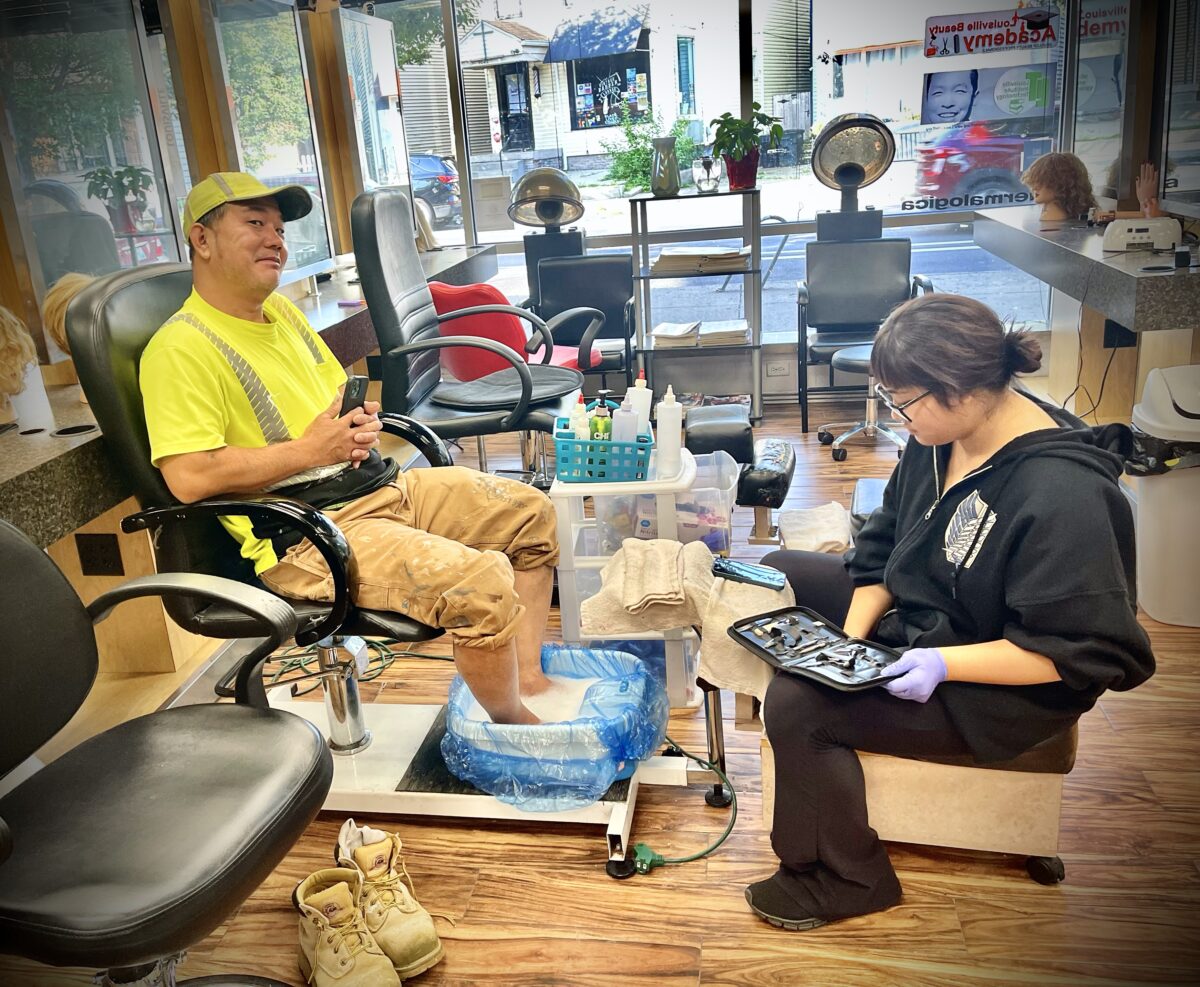In the heart of America, the story of Ti Lin Khounkham and his daughter Lily Lin offers a vivid illustration of perseverance, hope, and the indefatigable American spirit. Originally hailing from Lao, the Khounkham family epitomizes the essence of the American Dream, embodying the ideals of hard work and determination.
As the morning sun peeks over Louisville, Kentucky, the city witnesses an endearing tableau: a young 16-year-old, Lily, giving her hardworking father, Ti Lin, a pedicure. It’s not just any pedicure; it’s one she has honed and refined as a student at the renowned Louisville Beauty Academy. Founded by Di Tran, a Vietnamese immigrant and a beacon of the American spirit, this academy stands as a symbol of accessibility, affordability, and most importantly, dreams achieved. Serving the underserved, the academy has proudly graduated over a thousand students, each with a unique story of resilience.
Lily is no ordinary teenager. With her accelerated studies, she graduated high school early, showcasing an unparalleled drive. As she preps for college, she has her eyes set on acquiring her nail technology license from the Louisville Beauty Academy. For Lily, this license is more than just a certificate; it’s a ticket to independence, allowing her to earn a significant income through college and beyond. She mirrors the journey of Di Tran, the founder of her school. A proud American and an immigrant, Di Tran, with his bachelor’s, master’s, and PhD (ABD) in computer engineering, used his nail license as a stepping stone to support his education. Today, he juggles the roles of an active nail technician, salon owner, and an educator with aplomb.
Parallelly, Ti Lin Khounkham stands as a testament to the art of craftsmanship. As a skilled construction worker, he remodels homes, pouring his dedication and expertise into every project.
The synergy between father and daughter is palpable. Ti Lin’s grit and hard work, combined with Lily’s passion and determination, make for an inspiring duo. Their journey, from Lao to Louisville, is not just their own; it’s a tale that resonates with every immigrant, every hardworking individual aiming for a better life.
In the words of Di Tran, witnessing such profound moments of love and ambition, “Can this be more beautiful?” Indeed, America thrives on these stories. As the Khounkham family continues their journey, they remind us that dreams, when chased with unwavering spirit, do come true.
God blesses their path and the countless others who tread similarly, reminding us of the boundless possibilities that await in the land of the free.


